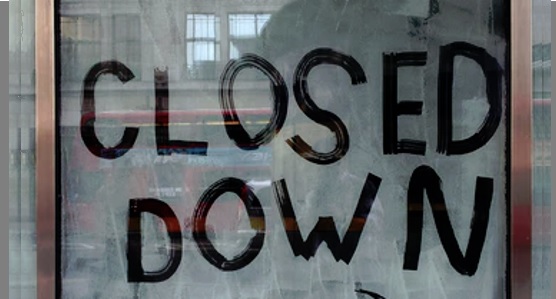
By Oregon Small Business Association,
Local small businesses faced a disappointing Black Friday as inflation, recession fears and wary shoppers helped to depress sales. Now local small businesses in Multnomah County face a new problem that could wipe them out altogether. Multnomah County is considering a county-wide tobacco and vaping flavor ban which would immediately force many vaping shops to remove most of their products and thus put them out of businesses — just in time for the holidays. The ban also would hurt local neighborhood convenience stores and shops which struggle to compete with larger chains. For instance, Fred Meyer parent company, Kroger, is eying a merger with Albertsons. Such mergers make big business corporate chains bigger and bigger while local governments pass laws making locally owned stores smaller and smaller.
Small neighborhood shops also have to compete with illegal black-market sales of tobacco and vaping products. It is a competition war with the internet and the internet is hard to beat. The ubiquitous internet offers cheaper products, often counterfeit products made in foreign jurisdictions and with no safety protocols. When neighborhood shops lose the sales of their legal, regulated products to illegal, unsafe ones on the internet it becomes a lose-lose situation for both small businesses and consumers who are now using an unsafe product. This would not achieve the goal of Multnomah County which is to prevent access by youths, it would make this goal much worse and much more unsafe. Online sales also cheat the tobacco tax on these products. This tobacco tax revenue goes towards prevention and health programs.
As neighborhood stores close in Multnomah county because of this proposed ban, it will also decrease people’s access to local markets. This will only increase the current problem of food deserts in many neighborhoods. The Oregonian once explained:
“A trip to a city grocery store seems like a small thing. The last time you went it took an hour or so, right? You probably stuck your spouse with the kids some Saturday while you shopped, then ferried home the heavy bags by car. Not Lesli Calderon. She might as well live in a desert. The closest grocery stores are more like mirages. No bus lines or sidewalks lead to one of the two in her neighborhood, and Calderon can’t drive there because she can’t afford a car. She could take a bus to the other, but she can’t afford the food. So when Calderon’s cupboards run bare, she hops a bus in Northeast Portland’s Cully neighborhood. And she rides it. And rides it. Until she reaches Clackamas County, and WinCo, 10 miles away. It can take four hours, round trip. When getting to market takes this much effort, epidemiologists consider it a threat to our collective health. Where we live determines where we buy food, which influences what we eat, factors into whether we’re fat and can seal whether, someday, we get diabetes or have a heart attack.”
Food deserts are just one more reason why diminishing the presence of local small neighborhood shops can balloon other problems down the road. Multnomah County should consider pulling this controversial and unworkable flavor ban and help stem the vanishing small businesses in Multnomah’s neighborhoods. The County should not make tobacco products less safe by driving people to the internet. The County should not reduce tobacco tax funding by driving people to the black market. The County should not make food deserts more pervasive in a time of need by closing more local neighborhood shops. The county should reject this ban.
Disclaimer: Articles featured on Oregon Report are the creation, responsibility and opinion of the authoring individual or organization which is featured at the top of every article.

